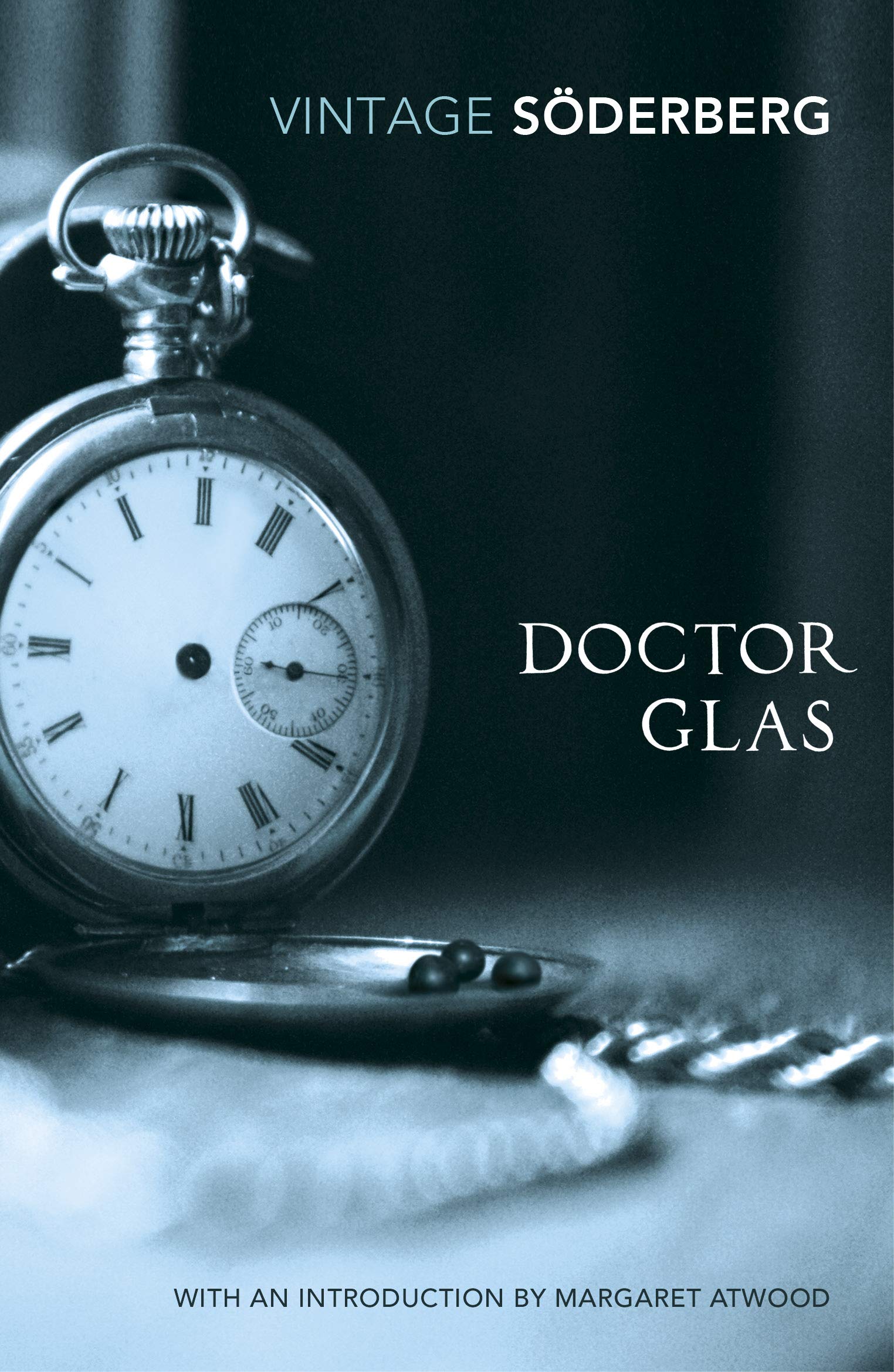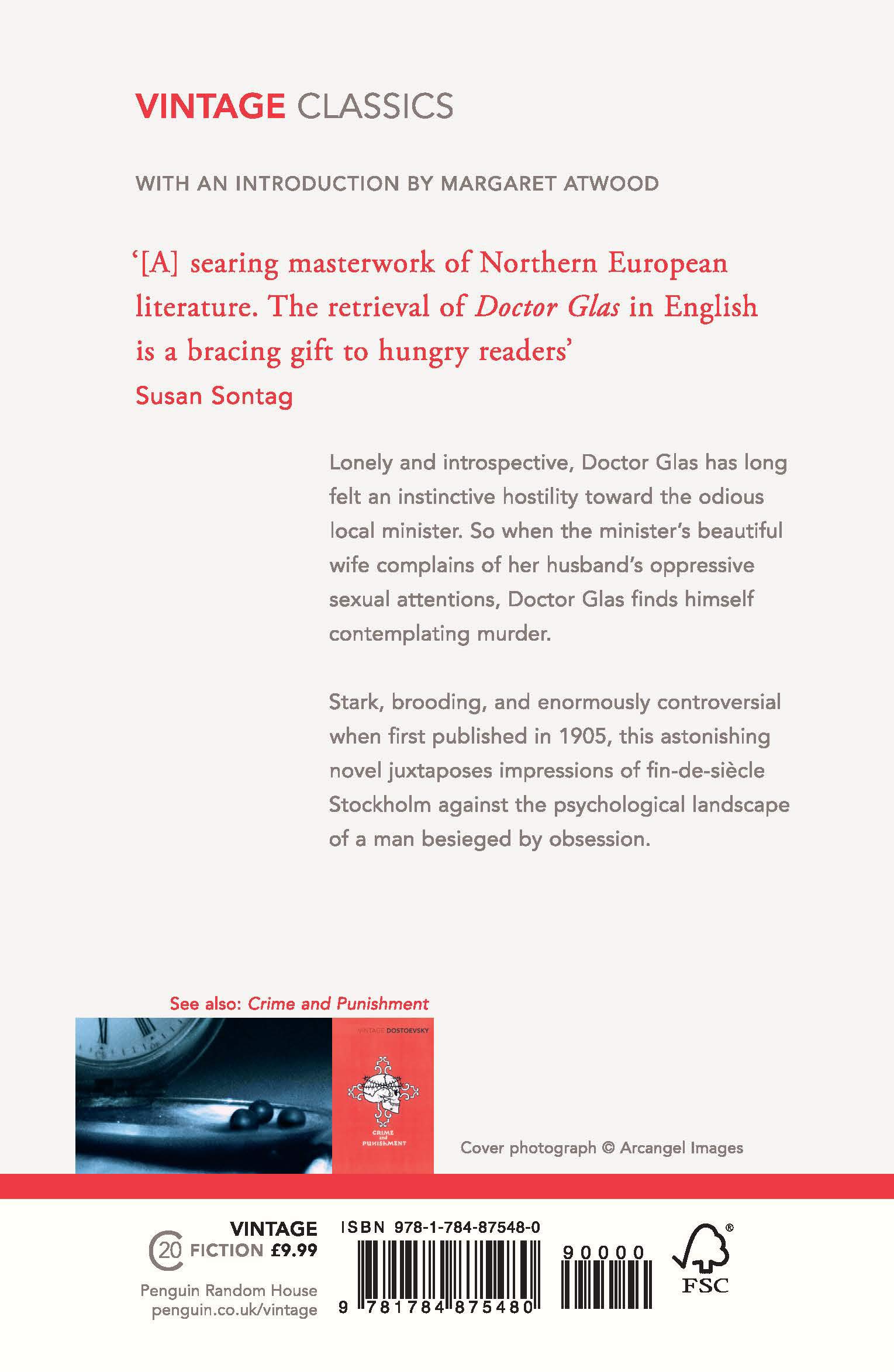Customer Services
Copyright © 2025 Desertcart Holdings Limited



Full description not available
J**S
What a Surprise - Alienation and Self-esteem "Issues" for a 19th century MAN
Anyone believing women had the monopoly on misery and disenchantment in the literature of the Nineteenth Century should think again and read "Dr Glas" . The eponymous male protagonist is every bit as unfulfilled and alienated as Emma Bovary, Edna Pontellier and Hedda Gabbler. And just as fascinatingly evoked by a perceptive author writing long before Freud and all his works...This is a short novel; brief but illuminating.
S**N
Perfect for book clubs
I had a friend tell me about this book, and I'm so glad he did. I don't know why this book isn't more popular - it's fantastic. Although it was written in 1905, it's as relevant today as it was then. This is a very short book, but it is incredibly meaty.Summary, no spoilers:This story is told by way of the diary entries from Doctor Glas, a lonely, Stockholm physician. He is in his 30's, and is a virgin. He is very bright, very philosophical, and has decided that he is above caring about such things as sex, or love.That is, until Helga comes into his life. She is a patient of his, and the wife of the local pastor, also a patient. Helga is young, and beautiful, and hates her repulsive husband who she describes as a "monster," who forces sex on her. She confides all this to Glas, as well as the fact that she is having an affair with another man.Glas, desperate to help her, struggles with the notion of killing the vile minister, to make Helga happy.One of the things that makes this book so fascinating, is that Glas tells us that he will not lie. Yet, we wonder if he is an unreliable narrator - because we wonder if he is becoming unstable. Is the minister such a bad guy? Why does he want to help Helga, when she is in love with another? What has happened in Glas's past that makes him the way he is?This is a book filled with ambiguities and discusses serious issues, such as abortion, euthanasia, religion, sex, and love. The discussion is as relevant today, as it was then. And because of all this, I am recommending this book for my book club. Though only 150 pages, I just know that it will make for a great discussion, and no two people will see it exactly the same way.Highly recommended.
J**W
Interesting background of Krister Henriksson's performance
This book was staged as a highly successful 85 min monologue by the Wallander actor and refines further his nuanced performance. I can see why it is a Swedish classic.
J**G
Suspenseful Tale of Morality and Impulse
"Doctor Glas" (1905), by Hjalmar Soderberg (1869-1941), is the philosophically conflicted diary of Tyko Glas, a young medical doctor in Stockholm, Sweden's largest city, in the form of his personal written diary. He tells us he is just thirty years old and looking for adventure, a progressive and aesthetic intellectual in a conservative city. He disdains the many requests he receives for abortions, invariably turning them away, not of his own beliefs, but because he fears Sweden's hypocritical society would ostracize him.One day a young lady named Helga provides his life a twist, coming to his examination room, pleading for him to declare she has an "infection of the womb", so her husband of six years, Pastor Gregorius, will not touch her sexually. In truth, she has another man in mind. Glas knows Gregorius personally, and despises him for his own reasons, but after some moral agonizing, the young doctor takes the bull by the horns, "diagnosing" Gregorius with a "weak heart", telling him sex could kill him. This medically-enforced chastity drives Gregorius mad, and he "rapes" his wife out of frustration one night. To diffuse the elevating tension, Gregorius takes a brief trip to another town, during which his wife openly appears in public with her lover back home on Stockholm's streets. Glas, the first-person narrator of this book, reflects on the meaning of life, recalling the young girls he knew earlier in life, admitting he has never held a female in an embrace, and finding himself falling in love with Helga himself.In his diary, Glas wonders if abortion and murder are not similar, in the sense that both relieve a burden of life. Glas wonders if Gregorius could justifiably be killed to relieve the "burden" upon his wife Helga. He reflects on morality, love, sex, and religion, his thoughts become increasingly feverish. He debates the issue through his diary, turning through various twists of logic, trying to find a relative position which is simultaneously moral and expedient. He even goes so far as to prepare two tablets of potassium cyanide, one for the pastor, and one for himself, should his plan go badly. He clearly loses mental clarity with his obsession over this issue.Will he actually try to kill Gregorius? Will he woo Helga for himself? Will he drop the entire issue, and snap back to reality? Will he accomplish the impossible reconciliation between morality and his impulses? The resolution will be an interesting one, but Glas will offer only one insight: "Life, I do not understand you."The book itself is nicely written, the prose lovely of description, polite, high-toned, and at times romantic, and the subject matter frank, from schoolboy wonderment and embarrassment, to "husband's rights" and the moral place of abortion, euthanasia, murder, love, sex, infidelity, and unrequited love in society. The narration is elegant, and this brief novel (150pp) is actually surprisingly substantial. The tone is thoughtful throughout, and an interesting book to read.(Note: Some readers might have some fun knowing there is a very interesting website, created by a fan, which features this book's various Stockholm locales posted in photos.)
J**H
the book arrived in excellent condition. As for the book itself
I had to purchase this book for a Scandinavian Literature class I took. First of, the book arrived in excellent condition. As for the book itself, I found it to be incredibly enjoyable and honestly something worth holding onto for a while. Surface reading does not do this book or the author justice. If you want to get a meaningful interpretation, you should honestly do some close reading (perhaps read it a couple of times as well). This book is by far, one of my favorites. I feel like I have been missing out on quality literature for a while. "Dr. Glas" is a breath of fresh air--especially compared to the redundant nature of English Literature.
Trustpilot
1 month ago
5 days ago